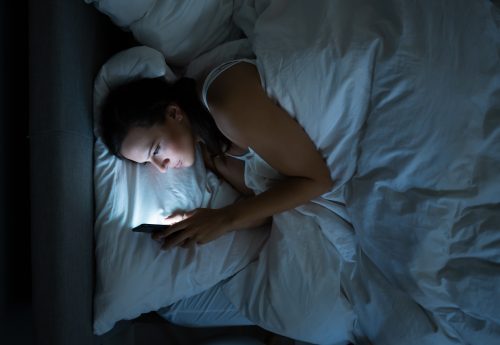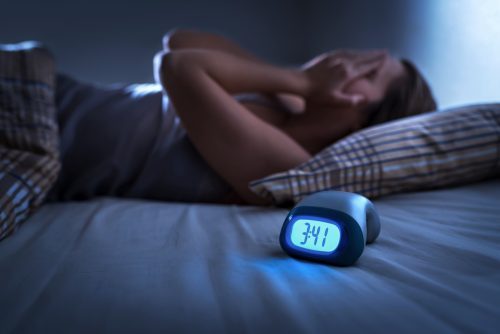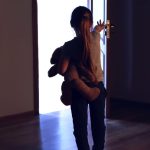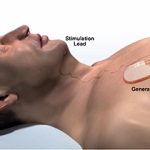Sleep seven to nine hours a night and still wake up exhausted? If so, there may be something that’s disrupting your sleep. Mass Eye and Ear sleep specialist, Noah Siegel, MD, offers guidance on how to avoid a poor night’s rest.
Sleep is crucial to help our bodies recover. While sleeping, we restore multiple parts of our bodies—we give our cardiovascular system a break, consolidate our memories, clear waste products from our brain and secrete certain types of hormones. Sleep keeps each body system functioning optimally and helps revitalize our bodies for the subsequent day. The quantity of sleep a person gets a night is important, however the quality of sleep is essential.
To avoid poor quality sleep, daily lifestyle adjustments may be needed. Focus had the opportunity to speak with Noah Siegel, MD, Director of the Sleep Medicine and Surgery Division at Mass Eye and Ear, to discuss how different external factors can disrupt sleep.
“People often don’t realize that there are habits and behaviors that can markedly impact the quality of their sleep,” said Dr. Siegel.
How does alcohol disrupt sleep?
Alcohol is a sedative—when we drink, our body is sedated and does not transition into normal sleep. After consuming alcohol, people go into a deeper sleep earlier. But once the alcohol is metabolized, the body awakens from the sedated state, and the rest of the nights “normal” sleep becomes poor quality.
Higher alcohol intake can lead to acid reflux, headaches, and even vomiting—all factors that can lower quality of sleep. It’s common that people use alcohol to relax after a stressful day, in hopes of having a deep sleep—but remember, a deep sleep for a few hours does not help with a full night of quality sleep.
How does caffeine disrupt sleep?
Caffeine is a stimulant that decreases drowsiness by blocking adenosine receptors, which are involved in sleep and wakefulness. The greater the caffeine intake, the longer a person stays awake and doesn’t feel tired. In the morning, there are positive benefits of consuming caffeine, as it increases energy levels. However, an important concept to remember is that caffeine has a half-life of six to seven hours, which means about six to seven hours after consumption, the amount of caffeine in the body is only reduced by half. Therefore, if we drink caffeine too late in the day, there is a significant risk it will disrupt sleep.

How does screen time disrupt sleep?
The light sources from devices like TVs, laptops, tablets and cellphones late at night send mixed signals to the brain that it is daytime, when it’s actually time for bed. In lower light, bodies start to secrete melatonin which helps promote sleep. If the brain and eyes are receiving bright light, the body is less likely to produce melatonin. This will ultimately make it more challenging to initially fall asleep at night, leading to poor sleep quality.
Light is not the only issue with devices when it comes to sleep disruption. A smartphone is mentally stimulating—whether we’re scrolling through social media, watching addictive content or having a heated text conversation, our brain is often not relaxed at bedtime.
How does obstructive sleep apnea (OSA) disrupt sleep?
OSA is a sleep disorder where an individual airway is perpetually obstructed in the middle of the night, causing breathing to repeatedly stop and start. Laying down, particularly on one’s back negatively affects everyone’s breathing. If an individual has OSA, they will have episodes where they gasp for air and their oxygen levels dip. This puts stress on the body and restricts a person from descending and staying in those deeper stages of sleep which are more restorative, therefore affecting the quality of sleep throughout the night.
What are negative side effects of not getting quality sleep?
Not obtaining quality sleep may be a stressor to the cardiovascular system and could increase risk of high blood pressure, irregular heart rhythm, heart attack and even stroke. There are also many studies about the cognitive impact of poor-quality sleep, which includes worsening memory, focus, attention and executive function in addition to neurocognitive decline over time.
People should recognize that there is always room for improvement with their sleep.
A telltale sign of poor-quality sleep is needing an alarm clock to wake up. Optimally we should sleep until our body wakes us up. If someone sleeps without an alarm clock, they’re probably doing well.

When is it time to see a sleep doctor?
From a sleep apnea perspective, people should look out for excessive snoring, irregular breathing and non-restorative sleep. If a person snores—and despite a lengthy night’s sleep—they still don’t feel rested, that is an important sign they should get checked out.
If someone is so exhausted that they fall asleep in inappropriate places, it’d be recommended to see a sleep doctor as well. With those signs, we’d start to worry about other sleep disorders, like narcolepsy.
If you or a loved one are experiencing constant exhaustion, please reach out to the Sleep Medicine and Surgery Division at 617-573-3954 at Mass Eye and Ear and make an appointment today.
About our expert

Noah Siegel, MD, is Director of the Sleep Medicine and Surgery Division at Mass Eye and Ear, and medical director of otolaryngology at the Longwood location, where he sees patients.



Tinnitus too!
very good,informative articje.
Thanks for reading, Kathy!